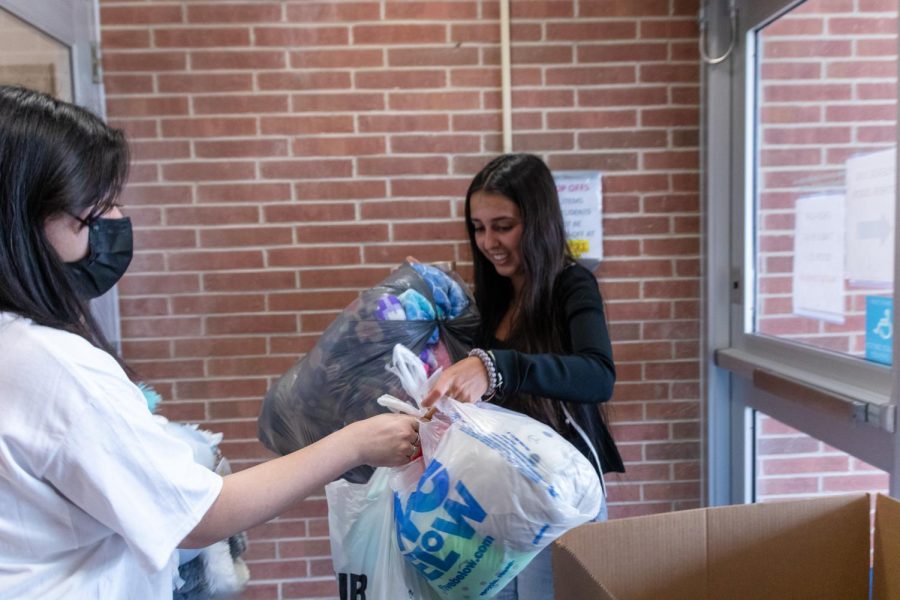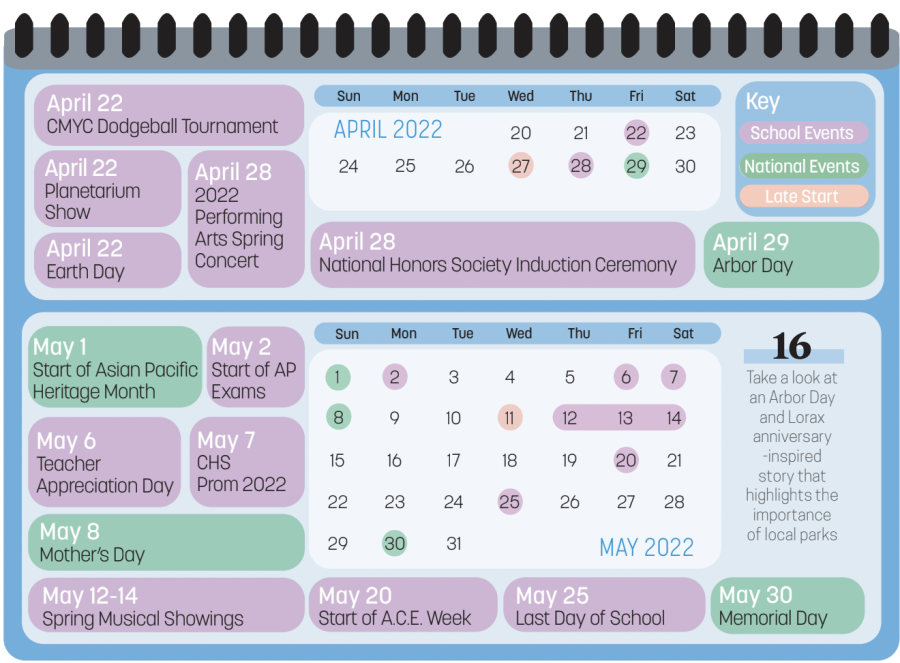This summer, I had the privilege of attending the Research Science Institute (RSI) hosted by the Massachusetts Institute of Technology (MIT) with 80 other high school students aspiring to be scientists.
This six-week summer program is an introduction to scientific research, where privileged students are paired up with mentors in leading Boston-area laboratories to conduct scientific research.
This was, hands down, the most transformative experience of my entire life, as I was given the fantastic opportunity to conduct microbiology research at Professor Anthony Sinskey’s lab at MIT.
Also, I had the distinct honor of attending lectures given by Nobel Laureates Phillip Sharp, Dudley Herschbach and Wolfgang Ketterle. Herschbach even gave me a hug after his presentation.
I was able to attend RSI free of cost due to the generous donations of sponsors, including U.S. governmental agencies such as the Department of Defense. Going to RSI made me realize even more the importance of STEM (science, technology, engineering, and mathematics) education in the United States. However, this is not a shared sentiment in the Obama administration.
According to The Scientific American, while the budget for the 2014 fiscal year does have a 6 percent increase in funding, the planned restructuring of the programs into three agencies—the Department of Education, the National Science Foundation and the Smithsonian Institution—is seen as being detrimental to the growth of STEM education.
The Science Educational Partnership Program (SEPA) that funds 60 different informational programs is being cancelled to this restructuring and will cause the National Institute of Health (NIH) to face a loss of $26 million.
These budget changes are especially concerning, when one considers the current state of STEM education in the United States. The United States is falling behind other developed nations regarding testing in STEM, as shown by the results of the Programme for International Student Assessment (PISA).
Out of 27 developed countries, the United States ranks 25th in math and 17th in science.
It is imperative and crucial for us to spread awareness about the irrationality of the government decisions on STEM education and to also promote STEM education in the United States in a more prolific and widespread manner.
As high school students, we can try to take more challenging science courses to expose ourselves to the subject in question. The more exposure students get to STEM, the more likely they will be inclined to study the subject in the near future.
Also, it is important for us keep open minds about pursuing STEM careers in the future. Additionally, science teachers should take a more active role in influencing students to major in STEM fields in college.
Moreover, encouraging students to pursue STEM careers can have a positive effect on the economy. A report released by the Brookings Institute in June 2013 reported that 20 percent of all careers had the requirement of a high level of knowledge in one STEM field. It demonstrated fully that STEM-oriented cities tended to have more positive performance regarding economic indicators like employment.
Fortunately, according to The Scientific American, the Senate Appropriations Committee showed its disapproval of the restructuring, finding that it would diminish and undermine the quality of the current STEM programs.
But there have surfaced concerns that the slow pace of the budget changes will not be able to reverse of the effects of the restructuring program quickly enough and inhibit the growth of STEM education.
However, hopefully, through greater awareness about STEM education, these problems that are created by the budget cuts will be able to remediate and students will be exposed to science in a positive, influential and effective manner through enriching and helpful programs like the RSI and SEPA.
The views in this column do not necessarily reflect the views of the HiLite staff. Reach Claudia Huang at [email protected].


































![British royalty are American celebrities [opinion]](https://hilite.org/wp-content/uploads/2024/03/Screenshot-2024-03-24-1.44.57-PM.png)


















![Review: “Suits” is a perfect blend of legal drama and humor [MUSE]](https://hilite.org/wp-content/uploads/2024/04/unnamed-1.png)
![Chelsea Meng on her instagram-run bracelet shop [Biz Buzz]](https://hilite.org/wp-content/uploads/2024/04/IMG_2446-1200x838.jpg)
![Review: Quiet on Set: The Dark Side of Kids TV is the long awaited exposé of pedophilia within the children’s entertainment industry [MUSE]](https://hilite.org/wp-content/uploads/2024/04/unnamed.jpg)
![Review: “The Iron Claw” cannot get enough praise [MUSE]](https://hilite.org/wp-content/uploads/2024/04/unnamed.png)
![Review: “The Bear” sets an unbelievably high bar for future comedy shows [MUSE]](https://hilite.org/wp-content/uploads/2024/03/unnamed.png)
![Review in Print: Maripaz Villar brings a delightfully unique style to the world of WEBTOON [MUSE]](https://hilite.org/wp-content/uploads/2023/12/maripazcover-1200x960.jpg)
![Review: “The Sword of Kaigen” is a masterpiece [MUSE]](https://hilite.org/wp-content/uploads/2023/11/Screenshot-2023-11-26-201051.png)
![Review: Gateron Oil Kings, great linear switches, okay price [MUSE]](https://hilite.org/wp-content/uploads/2023/11/Screenshot-2023-11-26-200553.png)
![Review: “A Haunting in Venice” is a significant improvement from other Agatha Christie adaptations [MUSE]](https://hilite.org/wp-content/uploads/2023/11/e7ee2938a6d422669771bce6d8088521.jpg)
![Review: A Thanksgiving story from elementary school, still just as interesting [MUSE]](https://hilite.org/wp-content/uploads/2023/11/Screenshot-2023-11-26-195514-987x1200.png)
![Review: When I Fly Towards You, cute, uplifting youth drama [MUSE]](https://hilite.org/wp-content/uploads/2023/09/When-I-Fly-Towards-You-Chinese-drama.png)
![Postcards from Muse: Hawaii Travel Diary [MUSE]](https://hilite.org/wp-content/uploads/2023/09/My-project-1-1200x1200.jpg)
![Review: Ladybug & Cat Noir: The Movie, departure from original show [MUSE]](https://hilite.org/wp-content/uploads/2023/09/Ladybug__Cat_Noir_-_The_Movie_poster.jpg)
![Review in Print: Hidden Love is the cute, uplifting drama everyone needs [MUSE]](https://hilite.org/wp-content/uploads/2023/09/hiddenlovecover-e1693597208225-1030x1200.png)
![Review in Print: Heartstopper is the heartwarming queer romance we all need [MUSE]](https://hilite.org/wp-content/uploads/2023/08/museheartstoppercover-1200x654.png)






















![Review: Ladybug & Cat Noir: The Movie, departure from original show [MUSE]](https://hilite.org/wp-content/uploads/2023/09/Ladybug__Cat_Noir_-_The_Movie_poster-221x300.jpg)

![Review: Next in Fashion season two survives changes, becomes a valuable pop culture artifact [MUSE]](https://hilite.org/wp-content/uploads/2023/03/Screen-Shot-2023-03-09-at-11.05.05-AM-300x214.png)
![Review: Is The Stormlight Archive worth it? [MUSE]](https://hilite.org/wp-content/uploads/2023/10/unnamed-1-184x300.png)





